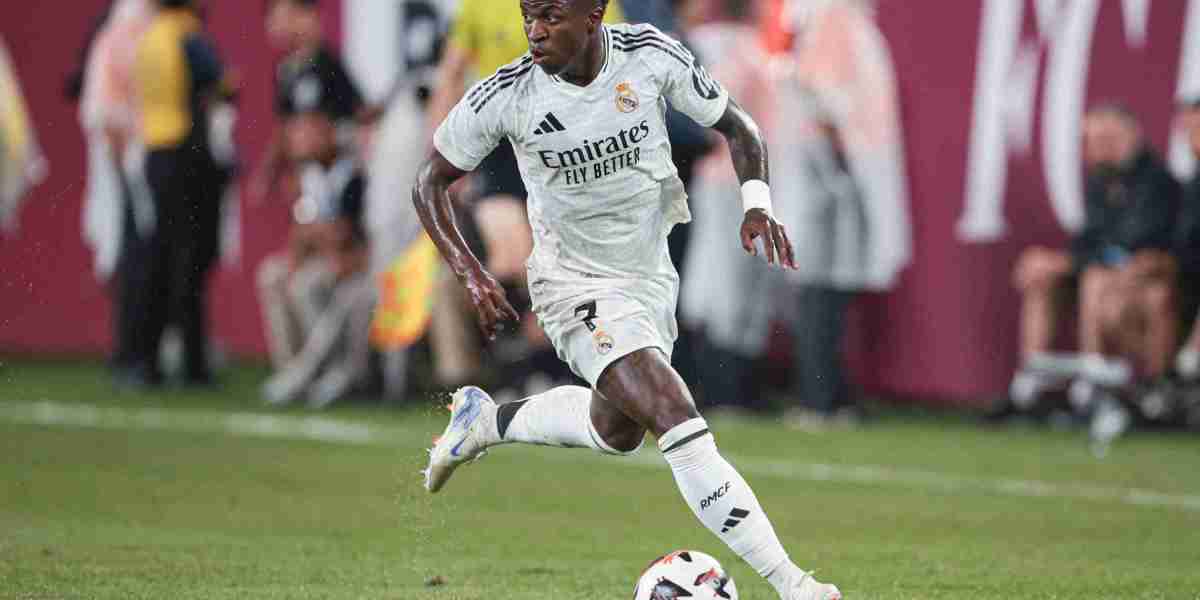In a year of cost-cutting, can Manchester United afford to move on from Erik ten Hag?
MANCHESTER, ENGLAND - SEPTEMBER 25: Erik ten Hag, Manager of Manchester United, looks on prior to the UEFA Europa League 2024/25 League Phase MD1 match between Manchester United and FC Twente at Old Trafford on September 25, 2024 in Manchester, England. (Photo by Michael Regan/Getty Images)
By Philip Buckingham
2h ago
12
Save Article
Manchest’s 3-0 loss at home to Tottenham Hotspur on Sunday was the type of surrender toer United start another uncomfortable debate.
Erik ten Hag’s position might have felt secure after the FA Cup final win over Manchester City in May eventually yielded a contract extension six weeks later but an unconvincing start to the new season has dredged doubts back to the surface.
Advertisement
United are 13th in the Premier League, six points adrift of the top four and with a goal difference of minus three after Sunday’s abject defeat by Spurs. They are in need of a response when travelling to Porto in the Europa League on Thursday night. Sunday’s visit to Aston Villa, too, has taken on added significance before the October international break.
Ten Hag continues to retain the backing of United’s decision-makers but the current run of form can bring no long-term guarantees for a club aiming to find its way back to the summit of English football.
United have much to consider with Ten Hag and, in a year of cost-cutting exercises at Old Trafford, there are financial considerations that cannot be overlooked.
What is Ten Hag’s contract situation?
Like Jose Mourinho and Ole Gunnar Solskjaer before him, Ten Hag has seen his position come under scrutiny a matter of months after being rewarded with a contract extension at Old Trafford.
An uncertain summer ended with United triggering a one-year extension to Ten Hag’s existing deal that had been due to expire at the end of this season. That became a commitment until 2026, with Dan Ashworth, United’s sporting director, calling the Dutchman “one of the most consistently successful coaches in European football”.
United’s support of Ten Hag extended to a reshaping of his coaching staff. Rene Hake and Ruud van Nistelrooy, two compatriots of the manager, were both appointed as assistants in the summer.
The vision for this season suddenly appears much less assured after three defeats from the opening six Premier League games.
Ten Hag has 21 months remaining on his extended United deal and his sacking will cost United a substantial sum. It has been widely reported previously that the 54-year-old earns £9million ($11.9m) a year at United, a sum trimmed by the club’s failure to qualify for the Champions League this season.
Van Nistelrooy is among the new coaches to have joined United this summer (Ash Donelon/Manchester United via Getty Images)
The details of any severance package that would be owed to Ten Hag are not known but it is safe to assume a change of manager would cost an eight-figure sum, potentially as much as £16million. That figure would inevitably have been much lower had United parted ways with Ten Hag at the end of last season, when less time remained on his deal.
Advertisement
The sacking of Mourinho and his coaching staff in 2018, for context, cost United £19.6million, it was revealed in the club’s accounts. Louis van Gaal and his coaches, meanwhile, were paid £8.4million when leaving with a year remaining on their deals in 2016.
Those numbers illustrate a wider cost of removing support staff and any dismissal of Ten Hag could see Hake also leave. The future of Van Nistelrooy, a United legend as a player, is less clear-cut.
Then comes the cost of hiring a new manager, their staff and any possible compensation if they are recruited from another club, though the final two candidates United spoke to in the summer, Thomas Tuchel and Roberto De Zerbi were at that point out of work.
Can United afford to lose that kind of money?
A club that turned over record revenues of £661.8million in the 2023-24 season ought to be able to wear the type of exceptional item associated with the sacking of a manager. United have done so before and, like any club, will do so again.
United’s finances, though, have become strained in recent times. For all they remain a powerhouse of European football, generating revenues that are the envy of most, three consecutive loss-making years pushed them to spending limits both with the Premier League and UEFA last season.
The pre-tax loss of £130.7million in 2023-24 made for a total deficit of £312.9million over the three-year accounting period, a position which drew questions over their compliance. Ten Hag himself told reporters in February that United had been unable to sign a new forward due to “FFP (financial fair play) rules.”
United are thought to have sailed close to the wind but stressed they had not breached limits when revealing the numbers in their latest set of accounts last month. “The club remains committed to, and in compliance with, both the Premier League’s profit and sustainability rules (PSR) and UEFA’s financial fair play regulations,” said Omar Berrada, United’s chief executive.
Advertisement
United’s pre-tax losses far eclipsed the Premier League’s loss limit of £105million over three years but the allowable deductions, including spending on the academy, women’s team and wider infrastructure, will have significantly reduced that figure. There was also an exceptional allowance of £40million written off in costs related to the Covid-19 pandemic in 2022, the year United posted a pre-tax loss of £149.6million.
Both of those numbers will cease to be a consideration in the new accounting period, though, with seasons 2022-23, 2023-24 and 2024-25 now forming the three-year assessment cycle.
That gives United breathing space and an increased, albeit finite, headroom for PSR compliance this season. A summer which brought the additions of Leny Yoro, Manuel Ugarte, Matthijs de Ligt, Joshua Zirkzee and Noussair Mazraoui for a combined £180million endorse that position but United’s sales also illustrated there remains a need to balance outlays.
Zirkzee arrived as part of another big summer of spending (Michael Regan/Getty Images)
Selling Scott McTominay, Mason Greenwood, Hannibal and Willy Kambwala will allow United to book in the region of £60million of profit in the 2024-25 season to strengthen their PSR position, covering the amortised transfer costs of those arriving.
The exits of high earners, such as Anthony Martial and Raphael Varane, will also help and United’s wider wage bill will also decrease this season after the club’s failure to qualify for the Champions League. The contracts of players rise and fall depending on participation in Europe’s elite competition but that does not make up for the downturn in revenue as a Europa League club this season. United made only £27.1million in prize money when reaching the quarter-finals of the 2022-23 Europa League, according to UEFA’s figures, and will have made twice that sum in the Champions League last term, even when finishing bottom of their group.
Calling time on Ten Hag, too, would add a heavy number to the balance sheets for 2024-25. That would be classed as an exceptional item but it could not be deducted in the Premier League’s PSR calculations.
Could sacking Ten Hag be too heavy a financial burden?
No matter the eventual sums in play, it is undeniably a hit that United would rather not incur. The arrival of Sir Jim Ratcliffe as co-owner earlier this year led to a redundancy programme being rolled out in the summer, with staff told of the club’s intention to shed 250 jobs as a cost-cutting exercise.
United have made clear their ambition to find “cost savings of approximately £40million to £45million” per year. “We are working towards greater financial sustainability and making changes to our operations to make them more efficient,” said Berrada at the announcement of the club’s accounts last month.
The cost of sacking Ten Hag would likely run higher than the annual amount saved in making 250 staff redundant but United’s hierarchy will be acutely aware of the potential cost of United’s on-field performances suffering.
Failing to qualify for the Champions League for a second consecutive season would bring a costly hit, one made worse by the increased amounts on offer under UEFA’s expanded format. Another lowly finish in the Premier League would also see a reduction in merit payments from the Premier League.
A campaign in the Europa League, with the chance to maintain matchday revenues, can help stem the bleeding but there is no financial substitute for success in the Champions League. Manchester City, as an uncomfortable point of comparison, made £113million in prize money when winning the 2022-23 competition.
Then there are the commercial impacts to consider. Although Snapdragon, United’s front-of-shirt sponsor, does not have a clause that reduces payments in the event of no Champions League football, another season outside of the elite competition will see United’s income from kit supplier Adidas fall by £10million under the terms of a new arrangement that begins in 2025-26.
If United continue to stumble and see domestic rivals make further ground in the coming weeks, the more pertinent question might yet become whether United can afford to stand by Ten Hag.


















































